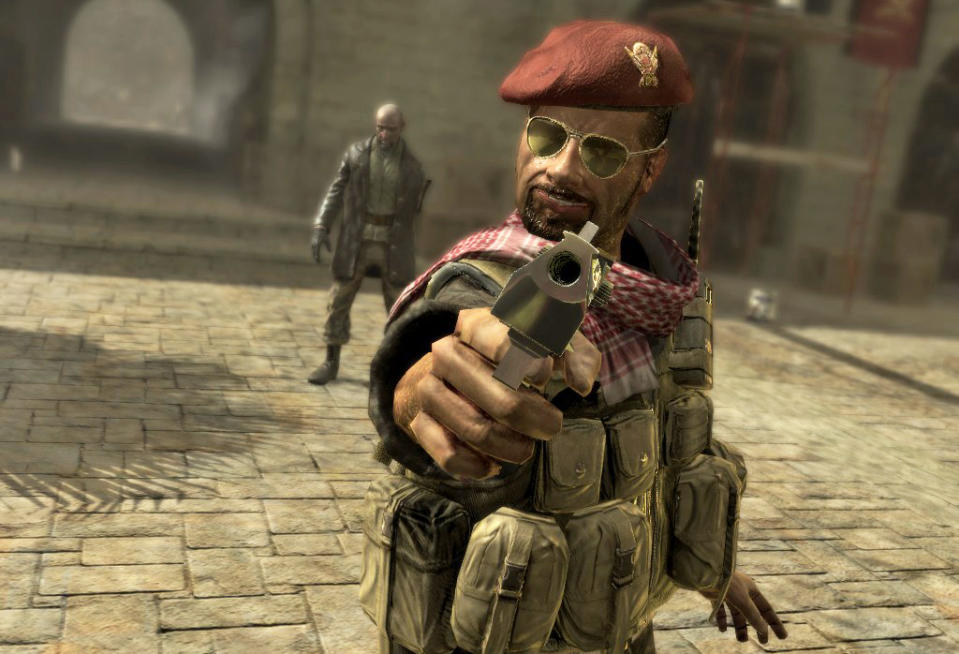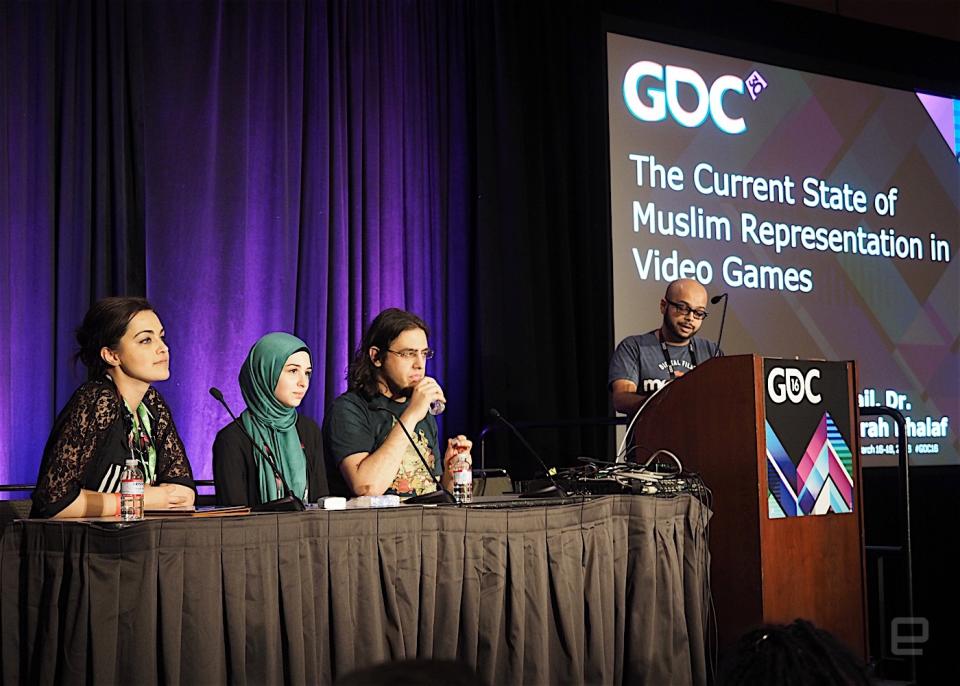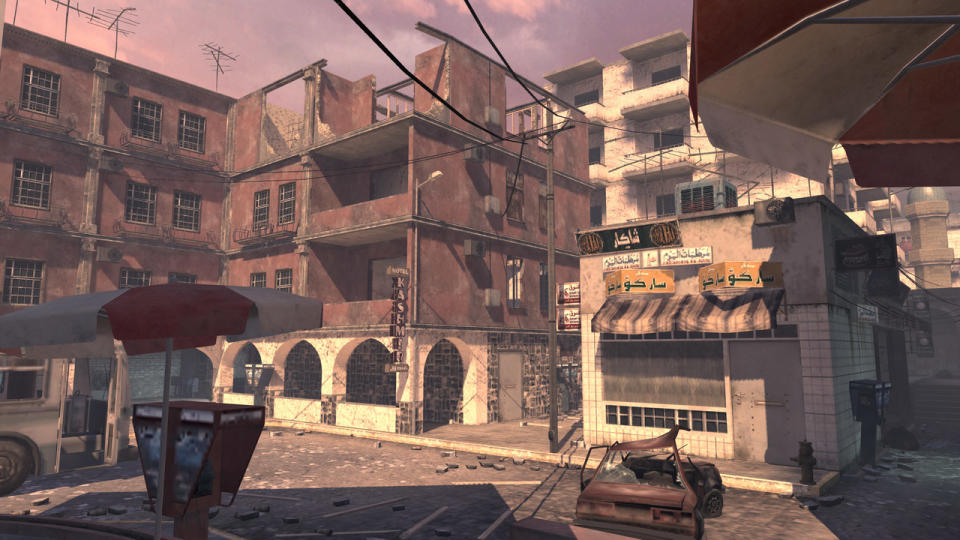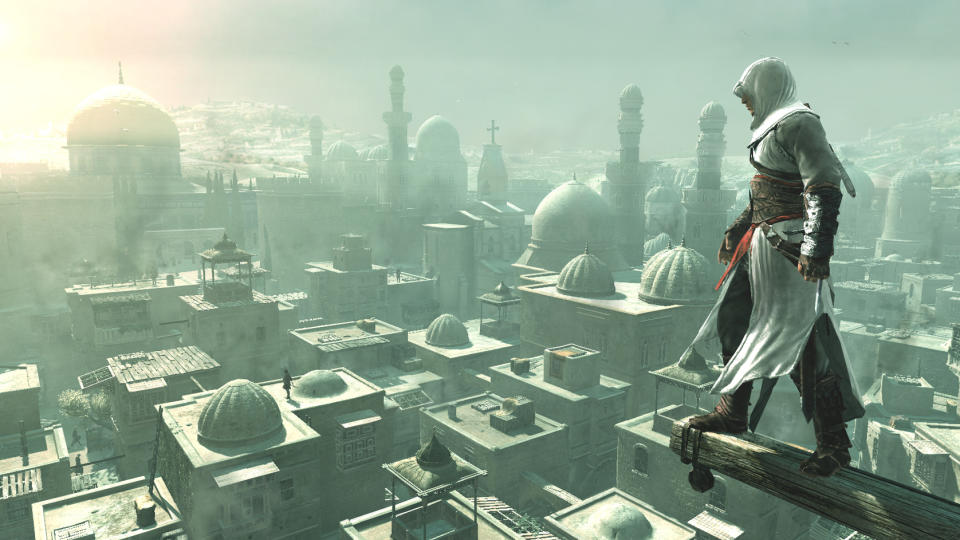Shooting the Arabs: How video games perpetuate Muslim stereotypes
"Muslim blood is the cheapest in the world."

Islam has an image problem. And it's not just recent world events that have led to an undue level of scrutiny and prejudice. The media has been pigeonholing Muslims for years. You need only watch a few episodes of 24 or Homeland to see that Muslims, particularly those of Arab descent, are almost always painted as the enemy.
"The current political and cultural climate is the reason in media we are the bad guys right now," said Rami Ismail, a co-founder of Vlambeer, an independent game studio based in the Netherlands. The same broad brush, he says, applies to video games too. The Call of Duty franchise, for example, is rife with Muslim villains -- like Khaled Al-Asad in Modern Warfare. "That's Call of Duty, over and over. Shoot all the Arabs," said Ismail. "Muslim blood is the cheapest in the world."
Ismail spoke last week on a panel at the annual Game Developers Conference about Muslim representation in video games. The presentation's tone was a sombre one. "The current election has been fueled by certain prejudices," said Imad Khan, a freelance journalist for the Daily Dot who moderated the panel. "There have been some latent animosity that has erupted in the past year leading to untoward criticism and actual violence."

"We are often just reduced to four or five stereotypes," said Dr. Romana Ramzan, a game design lecturer at Glasgow Caledonian University in the UK. "It's usually summed up by the clothes we wear. So if you're a woman, you wear a hijab [...] If you're a man, you have a beard or wear your national dress." She added that Muslims are also often portrayed as aggressive and violent. "In games, we will be represented as the 'other' people who are the ones you have to kill. Usually it's a slightly dark-skinned character shouting Allahu Akbar, carrying an AK-47. Or he has a camel or a goat."
When asked about the appearance of seemingly Muslim characters in fighting games like Zafina from Tekken 6, Ramzan said that her real issue is that a Muslim doesn't look like any one particular person. Muslims are not necessarily Arab, and Arabs are not necessarily Muslim.
"Why do we need to be represented by our faith?" she asks. "Why can't we be represented by our nationalities? Why can't it be what might a female from Pakistan look like, or from Lebanon, or Tunisia? We are all so diverse. No one's really sitting around thinking what does a Christian character look like." She gave an example of when she visited Morocco, and she saw women who were fully clothed from head to toe, and she also saw women who wore backless dresses and miniskirts. "It doesn't make them non-Muslims. It's just the way they are."

"Muslim is not a people," Ismail said. "It's 1.6 billion people across the world with various nationalities, backgrounds, languages. Not all Muslims speak Arabic." For example, Ismail said, the world's largest Muslim nation is Indonesia, which is not anywhere near the Middle East. "People just don't realize that."
It's not just the portrayal of Muslims that is problematic. In several video games, images of the Arab and Muslim world are often inaccurate. The above screenshot of Karachi in Call of Duty: Modern Warfare 2, for example, has Arabic written over it. But Arabic isn't spoken in Pakistan, which is where Karachi is located. In fact, Pakistanis speak mostly in English and Urdu. Farah Khalaf, a Palestinian-Iraqi game developer from New Zealand, said that she often wishes games would depict Middle Eastern cities as they really are, instead of sandy deserts. "If you show people an image of Beirut, they'll be surprised that it's modern!"
Still, video game portrayals of Muslims aren't all bad. Khan says Ubisoft did a good job with Assassin's Creed's Altair character. "It's this story of this orphan, who grew up in the Assassin Order. I thought it was really well done." It also portrayed Istanbul as a vibrant, gleaming city and featured a couple of historical characters like Suleiman the Magnificent and Selim II from the Ottoman Empire. Even Assassin's Creed wasn't completely free from error, however. Ismail pointed out it was odd to find out that Altair's father had the same last name (Ibn-La'Ahad) as him, since having the same name as your parents goes against Arabic naming conventions. Khan thought that was surprising, considering everything else in the game was well researched.

Another example of a positive portrayal of a Muslim character is Faridah Malik in Deus Ex: Human Revolution. She's a chief helicopter pilot described as a third-generation American born in Dearborn, Michigan, who's also a faithful practicing Muslim. Ismail does think she fits the stereotype of the "Good Muslim" -- oh, she's Westernized and therefore she must be good -- but likes the character nonetheless.
Khan also singled out upcoming titles like The Sun Also Rises (about civilians caught in the Afghan war), Dujanah (the story of a girl living in a Muslim country) and Saudi Girls Revolution (where the main characters are female motorcycle heroes who drive across post-apocalyptic Saudi Arabia) that show a different side of the Muslim world. The last in particular is a game developed by a Saudi prince, which Ismail said could inspire change.
"The industry just needs greater diversity," said Rahman. "We're not going to be telling interesting narratives without it."
Ismail agrees. "Diversity is number one. If you're going to make a game about a country, talk to somebody from that country. If you're going to have a foreign language, have someone who can read it. If you're going to have a religion in the game, get someone who understands it."
"These are very simple things," he said. "Just be a human being."
